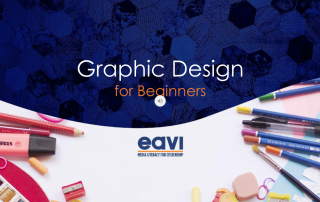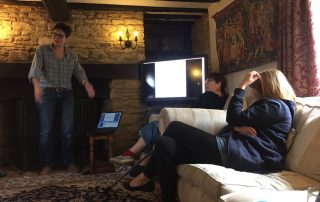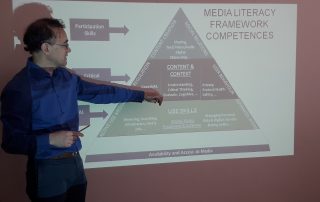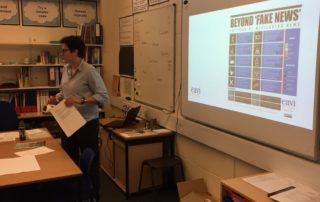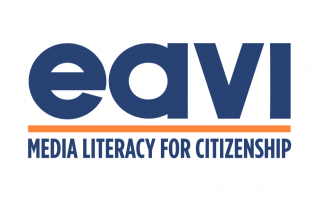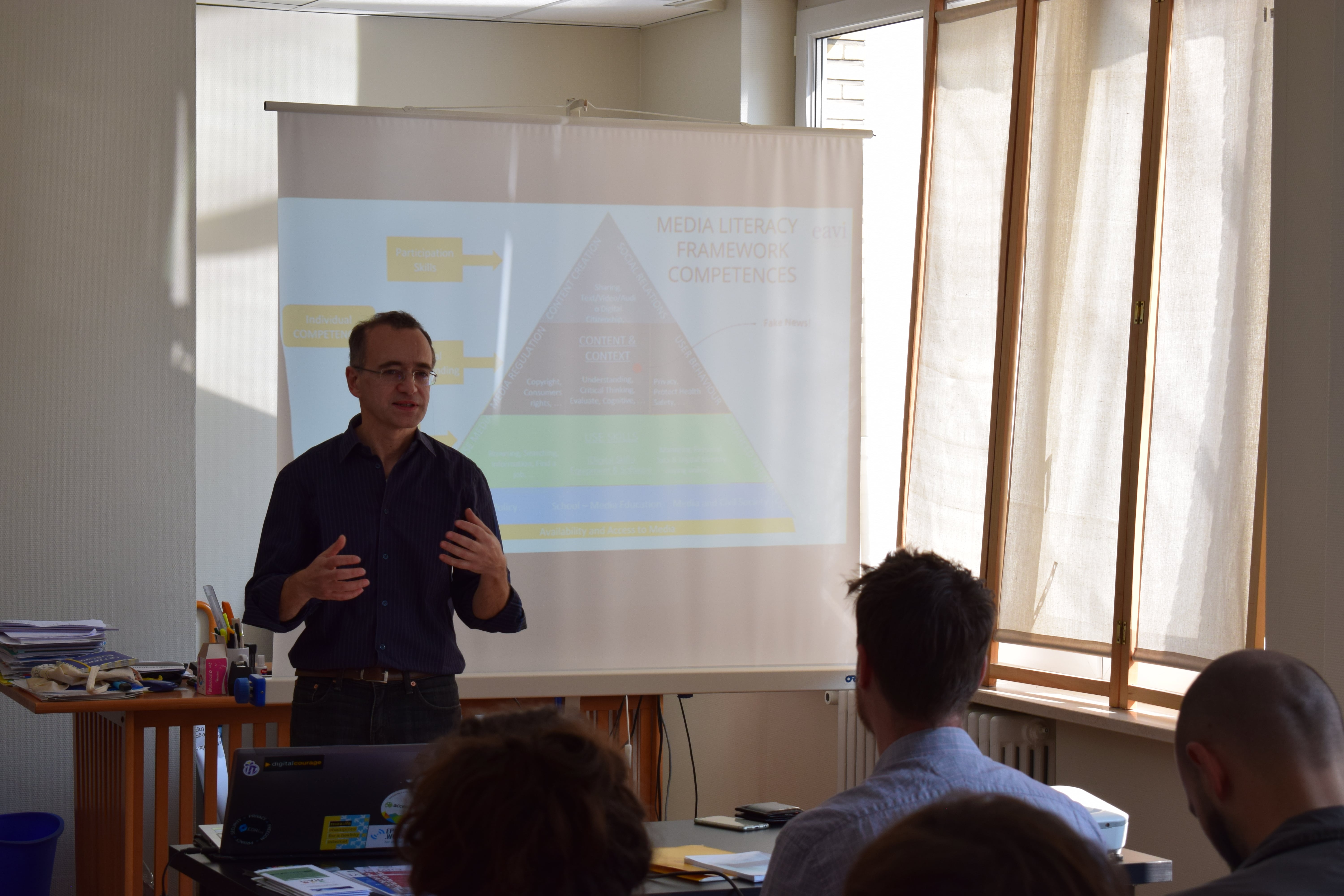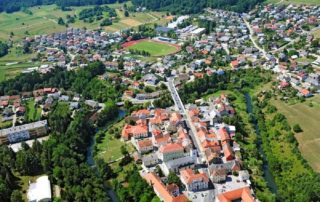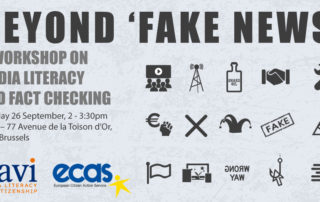What is Digital Culture? – An interactive workshop
EAVI recognises the importance of media literacy and citizenship at a European level with the goal to enable citizens to competently engage with media so that they can fully participate in democratic life. Our goals are ever more relevant as we increasingly become digital citizens faced with both the opportunities and challenges that this era brings. In this context, EAVI conducted the first piloting for the Digital Culture MOOC of the SIDE project on the 22nd of March, 2022, with the aim to: Enhance participants' current knowledge of digital culture; Teaching them new concepts [...]
Graphic Design for Beginners Workshop
EAVI, with the support of JCI - The heart of Europe, organized the workshop "Graphic Design for Beginners". The training had the purpose of educating people on creating simple graphical and visual content, which is a task that is nowadays often asked in the workplace by people not professionally trained in design. Additionally, the media creation skills taught in the course are useful tools that enable people to more actively contribute to online discourse and to make their voice heard on social media platforms. The workshop was organized as a [...]
EAVI Conducts Media Literacy Workshop at the Autistic Women’s Retreat 2018
On 22 September, EAVI attended the 2018 Autistic Women’s Retreat in Oxfordshire, UK to hold a workshop on media literacy for 15 participants – all autistic women from Britain, USA and Sweden. The workshop focused on media literacy concepts, and specific issues facing autistic women in their relationship with the media, both in terms of representation and participation. The workshop opened with an introduction to media literacy, using EAVI’s tried and tested six questions and three examples formula, three media messages were broken down and analysed by way of example. As the last media [...]
Media Literacy Workshop for Brussels Interns
On Friday, 22 June 2018, EAVI hosted a media literacy workshop for interns in Brussels to introduce them to concepts of media literacy and fact checking. The workshop was attended by interns from Lie Detectors, Long Life Learning Platform, Culture Action Europe, AnySurfer and ULB, as well as EAVI’s new cohort of interns. The workshop began with a presentation from EAVI’s Secretary General, Paolo Celot. He explained the definitions and concepts of media literacy, and as an illustrative example of the impact media has on our democracy, spoke about the work of Elfa Ýr [...]
Media Literacy Workshop (KIDS)
EAVI visited Stokeinteignhead School in Devon, UK, on 16 November 2017 to deliver a workshop introducing 10 and 11 year olds to media literacy.
Media Literacy Workshop (Ages 10-11)
Each part of the workshop is around one-hour in duration. The full day workshop will cover all of these parts. Pupils will be split into groups of four, of two girls and two boys where possible. They will be asked to work as a class in discussion, and in groups for some activities. Each part has an introduction of the key points, followed by a discussion, followed by activities and presentation of those activities by pupils, as well as further discussion if necessary. Learning goals: Part 1: The media and Me Participants will be [...]
Beyond Fake News Workshop – September 26, Brussels
EAVI’s Beyond Fake News Workshop took place on 26 September 2017, in association with ECAS. It was attended by 20 professionals from various international organisations, local and national governments and NGOs.
Media Meets Literacy Conference and Propaganda Lab – Sarajevo
EAVI recently attended the Propaganda Lab and Media Meets Literacy Conference organised by Evens Foundation in Sarajevo from the 19 - 21 September.
Participants from Belgium Needed for Train the Trainer Workshop in Slovenia, 6-12th November 2017
EAVI wishes to invite our individual members to apply to participate in a week of training in Slovenia: NEE(D)T Youth Work, 6-12th of November 2017 in Črnomelj, Slovenia.
Beyond Fake News – A Workshop on Media Literacy and Fact Checking
We are now subject to media messages more than at any time in history. As the barriers to creating professional-looking multimedia content have been lifted, democratising content production and giving everyday people the opportunity to contribute, so too has the need to verify the reliability of this content. It has become increasingly difficult to distinguish credible news sources from unreliable ones. The UK referendum in 2016 and the US election popularised the term ‘fake news’, but what is fake news and how do we know when we see it? Fake news and its effects [...]


